At the Green Coatings Sub-forum of the 10th International Forum on Clean Energy and the Olhão BlueTech Ocean Forum, Prof. Qian Peiyuan delivered a keynote speech titled "Sustainable Marine Technology: Challenges and Opportunities", in which he deeply explored the research progress, future development directions, and application potential in global green shipping of non-toxic anti-biofouling technology. This speech has attracted extensive attention from the participating experts and scholars, especially in terms of how to promote the green transformation of the shipping industry through technological innovation. Prof. Qian provided profound insights and detailed solutions.
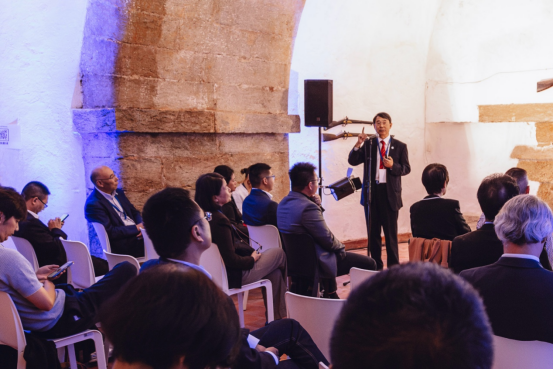
The Key Challenges of Non-toxic Anti-biofouling Technology
In his speech, Prof. Qian first analyzed the main challenges faced by the current marine transportation industry, especially the serious problems brought about by biofouling. Biofouling refers to the attachment of marine organisms such as shellfish and seaweed on the hull surface, which leads to an increase in hull resistance, an increase in fuel consumption, and an exacerbation of carbon emissions. This problem not only has a huge impact on the operating costs of the shipping industry but also poses a challenge to global efforts to address climate change. He pointed out that the global economic losses caused by biofouling amount to as high as $15 billion annually. With the continuous improvement of carbon emission standards for the shipping industry by the International Maritime Organization (IMO), solving this problem is extremely urgent.
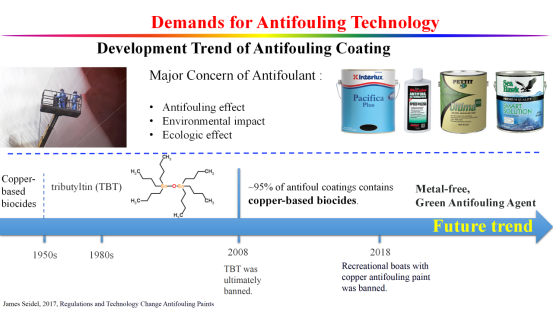
However, most of the traditional coatings currently used to prevent biofouling rely on toxic chemicals, especially copper-based pesticides. While these chemicals effectively reduce the attachment of marine organisms, they also have a heavy negative impact on the marine ecosystem. Prof. Qian specifically pointed out that copper-containing coatings, coatings containing toxic agents, and nano-coatings release harmful substances during the antifouling process, leading to a decline in marine biodiversity, disrupting the ecological balance, and may even affect human health and life through the food chain. This problem has placed the global shipping industry under great pressure and challenges in seeking environmentally friendly and efficient antifouling solutions.
The Development of Innovative Environmental-Friendly Coatings
In response to this problem, Prof. Qian and his research team have been committed to developing a series of non-toxic anti-biofouling coating technologies in recent years. He introduced in detail the team's latest research achievements in the speech. Among them, Butenolide, as an environmentally friendly anti-biofouling compound, shows great application potential. Butenolide can not only effectively inhibit the attachment of marine organisms but also has no toxic effects on non-target marine organisms. More importantly, this compound is biodegradable and will not cause secondary pollution to the marine environment.
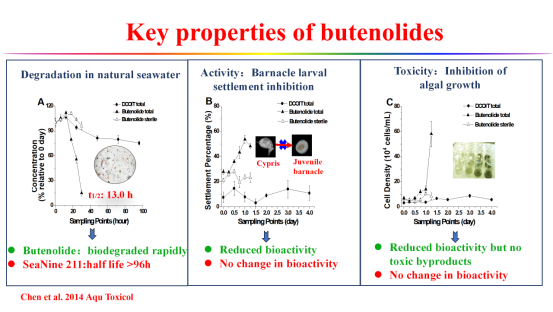
Prof. Qian specifically presented the successful application cases of Butenolide in the laboratory and actual marine environment. In the experimental tests, the compound showed a very high inhibitory effect on the attachment of major biofouling species including shellfish, barnacles, and seaweed. More importantly, the tests conducted in the actual marine environment indicated that this coating is far superior to traditional copper-based coatings in inhibiting the attachment of marine organisms and is environmentally friendly without causing harmful effects on other marine organisms. He emphasized that with the increasing awareness of marine protection and the demand for the green transformation of international shipping, this environmentally friendly coating will become an important part of future marine technology.
Research Breakthrough of Elasnin Anti-biofilm Agent
In addition to Butenolide, Prof. Qian also introduced the research progress of the team in another innovative environmentally friendly coating - Elasnin. Elasnin is a low-toxic anti-biofilm compound that can effectively inhibit the formation of marine microbial films. Prof. Qian pointed out that the formation of microbial films is a prerequisite for the attachment of marine organisms, and Elasnin can significantly reduce the biofouling on the hull surface by preventing the formation of such microbial films. Compared with traditional antifouling methods, the advantage of Elasnin lies in its targeted effect on microbial films, which not only reduces biofouling but also improves the energy efficiency and navigation safety of ships.
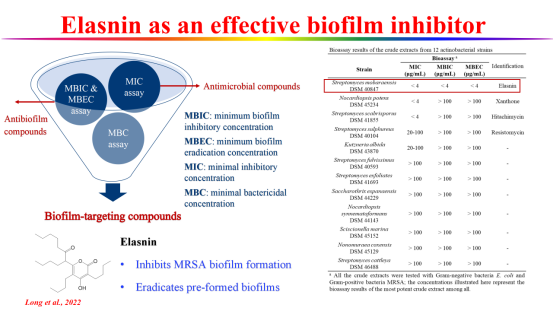
He further mentioned that the team's research shows that ships coated with Elasnin have a 5% to 10% reduction in fuel consumption. This not only has a positive impact on the operating costs of shipping companies but also significantly reduces the carbon emissions of ships, in line with the global goal of addressing climate change. In addition, the development of Elasnin also takes into account its production cost and the feasibility of large-scale application, which makes it expected to become a green environmentally friendly coating with broad commercialization potential in the next few years.
Future Development Directions and International Cooperation
At the end of the speech, Prof. Qian summarized the future development directions of non-toxic anti-biofouling technology and called for greater international cooperation in this field. He pointed out that although non-toxic anti-biofouling technology has made significant progress in laboratories and some practical applications, to achieve large-scale commercial application, further challenges including cost control and market promotion still need to be addressed. He suggested that the international community should strengthen scientific research cooperation and technological exchanges in this field to promote the innovation and popularization of environmentally friendly coatings.
Prof. Qian specifically called on governments and industry associations of all countries to provide policy support and legal protection for the promotion of environmentally friendly coating technology to help shipping companies accelerate their green transformation. He pointed out that the emission reduction targets set by the International Maritime Organization provide an opportunity for innovation in ship antifouling technology, and the wide application of non-toxic coatings will be one of the key steps to achieve this goal. He hopes that through the joint efforts of global scientific research institutions and enterprises, environmentally friendly coating technology can achieve further breakthroughs in the next few years, contributing more to the green development of the global shipping industry and marine environmental protection.
Prof. Qian Peiyuan's keynote speech not only demonstrated the application prospects of non-toxic anti-biofouling technology in green shipping but also put forward practical suggestions for future technological innovation and international cooperation. Through the promotion and application of this series of environmentally friendly coating technologies, the shipping industry will usher in important changes in reducing carbon emissions and pollutant emissions. Prof. Qian's report provides strong support for the sustainable development of the global shipping industry and lays a solid technical foundation for future green shipping.
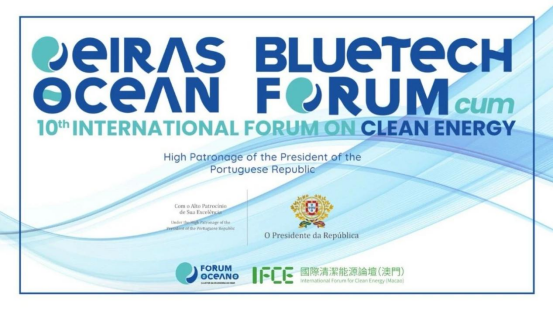
Attachment download:
